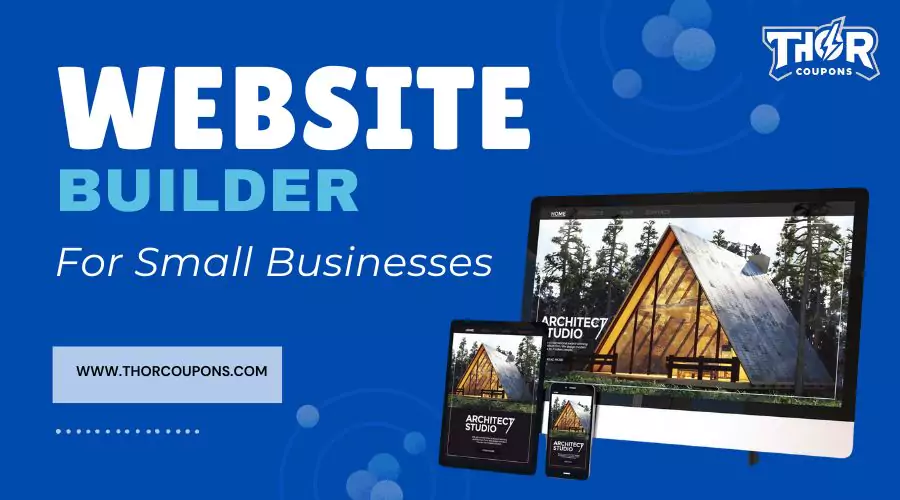A reliable website builder for small businesses can make the process of building a solid online presence much easier for small businesses. Easy-to-use tools provided by small company website builders enable you to create and edit your website without needing extensive technical knowledge. With features like changeable templates, drag-and-drop interfaces, and integrated e-commerce options, these systems enable you to effectively showcase your products and services. A website builder for small businesses can assist you in creating a polished online presence that draws clients and increases sales, regardless of your goal—building a basic informational website or a large online store.
The Current State of Website Builders
It is no longer necessary to have a lot of money or a computer science degree to create a business website. A modern website builder for small businesses has made what was previously a challenging technical undertaking as easy as creating a social media page. But it can be like trying to identify a needle in a digital haystack when there are so many possibilities available.
Core Requirements for Business Success
Forget the bells and whistles that platforms advertise. The fundamental needs are simple: mobile responsiveness is a must, as the majority of consumers surf on their phones while lounging at home or in line. Having an easily updated website is equally crucial. Too many business owners are left with stunning websites that are too complicated for them to update on their own.
Breaking Down the Options for a Website Builder for Small Business
Names like Shopify and Wix are frequently mentioned to small business owners. Knowing each platform’s sweet spot will help you avoid frustration in the future, which can last for months. For example, the beautiful visual layouts and simple menu systems have made it the preferred option for creative companies and restaurants. Not because of fancy features, but because customers found the website easier to use, a local café owner recently explained how moving to a platform doubled their online reservations in just two months.
Conversely, Shopify has established a place for itself in the retail industry. It may be a little more expensive than simple a website builder for small businesses, but it’s a powerful tool for companies that are serious about selling products online. A small boutique owner in Seattle recently revealed that moving to Shopify eliminated three different software subscriptions they were juggling for inventory, sales, and shipping. The streamlined system not only saved money but also freed up countless hours previously spent on manual data entry.
The Real Cost Breakdown
Money talks, and a website builder for small businesses come with varying price tags. Most platforms advertise attractive starting rates around $15-30 per month, but these basic plans often tell only part of the story. The real cost of a business website typically includes the platform subscription, a domain name, perhaps some premium features, and possibly professional photos or content creation.
For a professional business website, a reasonable first-year budget often falls between $500 and $1,000. Some small business owners may find this expensive, but when you contrast it with the price of traditional web development, which can easily reach the thousands or even tens of thousands of dollars, you can see how worthwhile it is. Plus, a modern website builder for small businesses includes hosting, security, and regular updates, expenses that traditionally required separate vendors and contracts.
Beyond the Basics: What Really Makes a Business Website Work
Selecting the most costly platform or the one with the most features isn’t the key to success with a website builder for small businesses. Rather, it’s about identifying the best fit for particular company requirements. A retail establishment has distinct needs than a yoga class, while a restaurant requires different characteristics than a consulting firm.
For instance, consider Maria’s Flower Shop. They experimented with three various website builders before settling Online, not because it was the most expensive choice but rather because it allowed them to easily integrate their online and in-store sales. Their narrative brings to light a crucial reality: the platform that best addresses your unique company problems, not the one with the most features, is frequently the best option.
Tips for Choosing the Right Website Builder
- Define Your Goals: Decide what you hope your website will accomplish. Are you concentrating on offering knowledge, selling goods, or exhibiting your portfolio? The platform you choose will depend on your objectives.
- Think About Your Budget: For your website, establish a budget. Examine the pricing structures offered by various builders, bearing in mind that some might demand monthly fees, while others might provide free versions with restricted functionality.
- Test User Experience: Most website builders for small businesses offer free trials. Take advantage of these to explore their features and user interface before committing.
- Evaluate Scalability: Consider whether the builder can grow with your business. Seek out options like more storage, premium layouts, or sophisticated e-commerce capabilities that will help you grow.
- Examine reviews: To learn about the benefits and drawbacks of each platform, read customer evaluations and testimonials. You will gain knowledge about other small business owners’ experiences as a result.
Conclusion
All things considered, selecting a website builder for small businesses is essential to creating a powerful online presence and provides an exceptional solution designed to satisfy those requirements. Small businesses may successfully reach their target audience, improve consumer interaction, and spur growth by utilizing the Squarespace platform, which makes it a great option for anyone hoping to thrive in the digital economy.
For more information, visit Thorcoupons.

